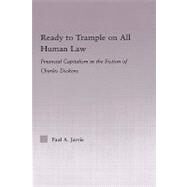- ISBN: 9780415975247 | 0415975247
- Cover: Hardcover
- Copyright: 6/29/2005
This book explores the relationship of several of Dickens's texts (Nicholas Nickleby, A Christmas Carol, Little Dorrit and Our Mutual Friend) with the system of finance capitalism, both as reflections of the evolution of that system, and as attempts to shape and influence, if not the system itself, at least public opinion about the system and the actions of those who participated in it. Specifically, the book examines elements of Dickens's work that form a critique of financial capitalism. Dickens's critique is rooted in the difference between use-value and exchange-value, and in the difference between productive circulations and mere accumulation. The critique details how, in a money-based society, exchange-value and accumulation become dominant to the point where they infect even the most important social relations. In terms of distinctive features, the book attempts to understand Dickens's critique of financial capitalism from within two very different points of view. The first of these isphilosophical, from Aristotle's distinction between "chrematistic" accumulation and "economic" use of money to Marx's focus on the teleology of capitalism as death. The second context is that of nineteenth-century financial journalism, of "City" writers like David Morier Evans and M. L. Meason, who, while functioning as "cheerleaders" for financial capitalism, also reflected some of the very real "dis-ease" associated with capital formation and accumulation. The core concepts of this critique and their fundamental relationships are constant in the novels, but the critique broadens and becomes more pessimistic over time. The ill effects of living in a money-based society are presented more as the consequences of individual evil in earlier novels, while in the later books they are seen as far more systemic and pervasive.







